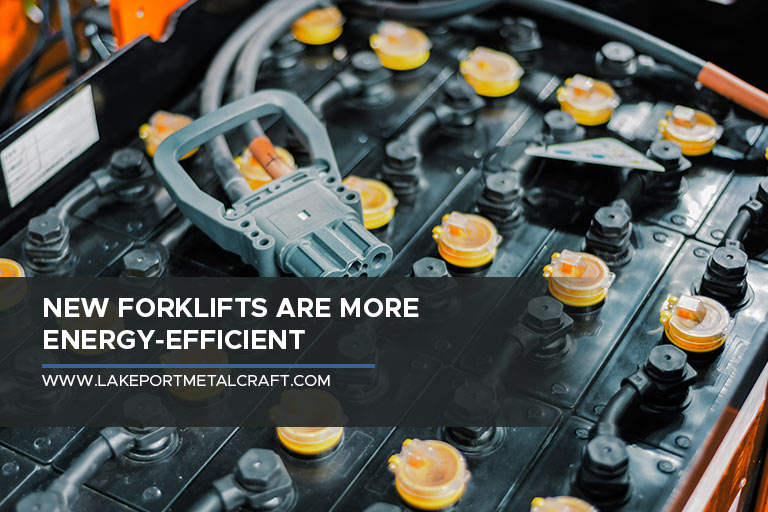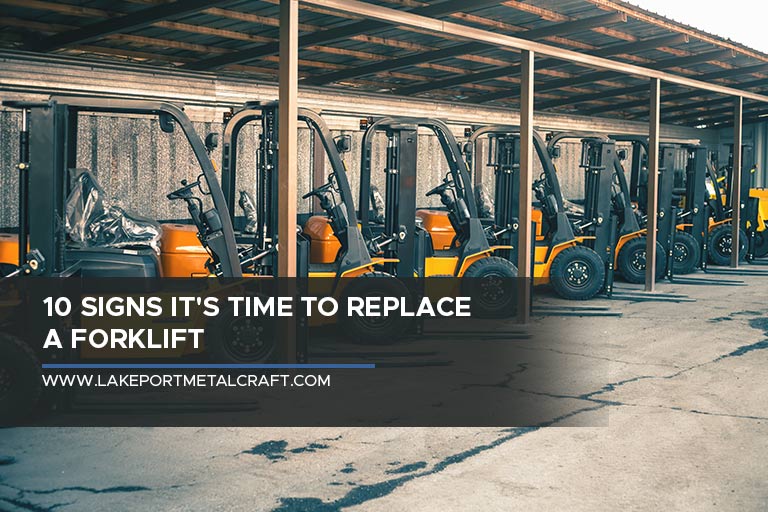Understanding when to replace your forklift is essential for maintaining an efficient and productive fleet. Knowing the right time for replacing outdated forklifts offers numerous advantages for your business.
What are the benefits of a new forklift? First, advancements in technology and design have resulted in more efficient and powerful forklift models, leading to increased productivity and reduced operational costs. Also, older forklifts may lack the latest safety features and fail to meet industry standards, posing a risk of accidents and injuries. You can upgrade your fleet with modern safety technologies, ensuring a safer working environment. Getting newer models with enhanced capabilities and reliability significantly improves operational efficiency and reduces maintenance costs.
Here are some signs to replace your forklifts:
- Internal combustion engines power the forklifts in your fleet
There are numerous advantages to using electricity-powered lift trucks compared to internal combustion alternatives.
Electric forklifts, which comprise approximately 65% of the market and are gaining popularity, contribute to sustainability efforts by significantly reducing carbon emissions, contributing to a cleaner and healthier working environment. While the upfront cost of electric forklifts may be higher than that of propane-powered trucks, they ultimately offer a lower total cost of ownership. This is achieved by saving money on fuel, maintenance, and repairs throughout the lifespan of the vehicle. They also provide a more pleasant operating experience with reduced vibrations, quieter rides, and less heat, in addition to its zero emissions feature.
- Your forklift has accumulated over 10,000 operating hours
Implementing proactive maintenance practices is a key factor in extending the lifespan of your forklift. Despite your operation’s vigilance in servicing the fleet, downtime becomes inevitable as the forklifts age. When the trucks reach around 10,000 hours of operation, major repairs are to be expected. This leads to a surge in maintenance costs and an increase in downtime.
- The age of your forklifts is at least 7 years
What is the expected life of a forklift? According to a Peerless Research Group and Modern Material Handling survey, lift trucks are typically replaced every 7 to 8 years on average. However, it’s important to note that this timeline can vary based on factors such as usage patterns, maintenance practices, and the specific demands of your operations.
Similar to the impact of operational hours, the age of a forklift can also influence maintenance expenses. Essential components like motors, drive units, and electronics may require replacement, leading to increased downtime and higher maintenance costs
- The maintenance costs for your forklifts are significantly high

When considering a replacement for your forklift, it’s crucial to look beyond its age alone. As the forklift ages, maintenance costs, which include parts and labour expenses, tend to rise. One forklift maintenance tip that is highly recommended is to retire a truck when the average monthly maintenance cost begins to approach or surpass the monthly payment for a new lift truck. The same goes for when the maintenance cost exceeds 10% of the price of a new truck.
- The current equipment fails to meet your requirements
Occasionally, the need for forklift upgrades or replacements are due to shifts in business requirements or operational changes within a warehouse. This could be prompted by a job site requiring the handling of heavier loads, which the existing forklift fleet may be incapable of managing. Ensuring forklift operator safety is crucial when load handling requirements change. As an employer or company, you must equip your employees with suitable equipment for their tasks. Overloading a forklift can pose significant risks to the operator, potentially resulting in severe harm if mishaps occur.
- There is a decline in productivity
If you’re facing difficulties meeting productivity expectations with your lift trucks, it could be due to inadequate fleet size or excessive downtime caused by aging trucks with high operational hours, as indicated by forklift performance indicators. Outdated batteries or improper matches can also lead to decreased productivity. Upgrading to newer trucks with advanced energy storage solutions may be more beneficial than replacing batteries in older, less efficient models. Conducting a power audit based on forklift performance indicators will help determine the optimal solution to enhance operations.
- You require additional space
One approach to achieving more space is to consider reducing the width of the aisles. By transitioning from 12-foot aisles to 5-foot 6-inch aisles, which are accessible to newer forklift models, companies can save 32% of the floor space. This leaves room for 46% more pallets.
- You are experiencing problems with the batteries

If you’re experiencing battery issues, it may be time to reassess your energy solutions. Fortunately, advancements in energy storage technology offer cost-effective options like lead-acid, lithium-ion, and hydrogen fuel cells.
Lead-acid batteries are reliable, flexible, and affordable, making them popular. You can maintain adequate battery charge and increase productivity by utilizing opportunity and fast-charging applications.
Lithium-ion power provides long-lasting performance, fast-charging capabilities and eliminates the need for spare batteries. It’s efficient and ideal for demanding applications like cold storage.
Hydrogen fuel cells are also available as an alternative energy source to explore.
- Downtime has increased
Downtime can significantly impact your business’s productivity and overall operational expenses. Adding new equipment to your fleet enables your operators to work consistently, resulting in increased uptime for your operations. This, in turn, enhances productivity and helps minimize operational costs.
Consider these factors to make an informed decision regarding forklift replacement. If you do decide to get the latest models, make sure to equip them with safety accessories like “The Backbone”, a stand-up reach truck rear guard in Toronto. For more information, call Lakeport Metalcraft at 416-587–5809 now!

